Research Labs
Many exciting projects are underway in the Department of Communication Sciences and Disorders providing undergraduate and graduate students with opportunities to learn through research. In addition to individual faculty- and student-led projects, active research laboratories address a broad range of topics in speech, hearing, and language. Current investigations include studies in audiogenomics; tinnitus; cell and molecular pathology related to cellular repair, neuroaudiology, and brain injury; evaluation and treatment of cognitive-communication disorders; and early speech and language development.
Below is a description of our laboratories and some of our current research activities.
Rebecca S. Bartlett, PhD, CCC-SLP Accordion Closed
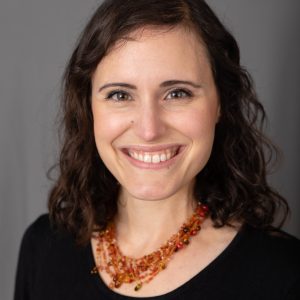
Rebecca S. Bartlett, PhD, CCC-SLP
Rebecca S. Bartlett, PhD, CCC-SLP is an Associate Professor at Northern Arizona University (NAU) whose research involves using mixed methods to understand oropharyngeal swallowing and the relevant treatment implications. While at NAU, Dr. Bartlett has collaborated on research projects with faculty in the College of Nursing on clinical training using human patient simulators, with the Department of Psychological Sciences on the psychosocial implications of dysphagia in individuals with Parkinson’s disease, with the Department of Dental Hygiene on interprofessional education (IPE), and with the Mechanical Engineering Department on a device-driven treatment for dysphagia. She has also mentored numerous graduate student research projects. Prior to her work at NAU, Dr. Bartlett earned a Master’s degree in Speech-Language Pathology at University of Iowa and a PhD from University of Wisconsin-Madison. She has worked as a speech-language pathologist in medical settings both domestically and abroad and uses these experiences to inform her research and teaching.
O’neil W. Guthrie, M.S., PhD., CCC-A Accordion Closed
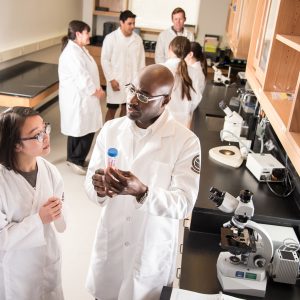
O’neil W. Guthrie, M.S., PhD., CCC-A
Dr. Guthrie’s laboratory is the Cell & Molecular Pathology Laboratory (CMPL). The CMPL is broadly focused on defining the cellular and molecular bases of diseases as a necessary prerequisite to the development of biomedical therapies. To this end, work in the CMPL is identifying and manipulating endogenous molecular mechanisms that mediate cellular/tissue injury and repair. The laboratory employs multiple strategies that encompasses molecular biology, biochemistry, genetics, epigenetics, exploratory pharmacology, electrophysiology, microscopy, histopathology, cytology and design-based stereology. Work in the Laboratory is conducted by: Research Scientist, Research Specialist, Research Associate, Research Assistant, Postdoctoral Scholar, graduate and undergraduate students. The various lines of research have been generously funded by the US Army, US Airforce, US Veterans Administration, the National Institutes of Health, Technology and Research Initiative Fund, Biotechnology Partnerships, etc.
Lindsey Hiebert, Ph.D., CCC-SLP Accordion Closed
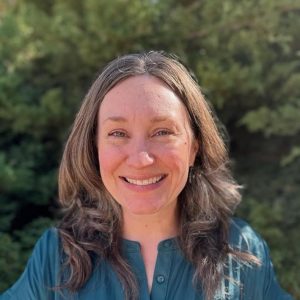
Lindsey Hiebert, Ph.D., CCC-SLP
Lindsey Hiebert, PhD, CCC-SLP is an Assistant Professor at Northern Arizona University. She earned a PhD in Communication Sciences and Disorders from the University of Texas at Dallas and completed a Postdoctoral Fellowship at the University of Delaware. Her research interests include bilingual language development, disorders, and intervention in preschool and school-age children, stemming from her extensive clinical work with culturally and linguistically diverse populations. Her publications to date include longitudinal observations of language and reading development in Spanish-English bilingual children across three or more years, and intervention that includes science curriculum.
Emi Isaki, PhD, CCC-SLP: Adult Cognitive-Communication Laboratory Accordion Closed
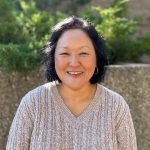
Emi Isaki, PhD, CCC-SLP
Dr. Isaki has been a medically-based speech-language pathologist for over 30 years. Her clinical research focuses on neurogenic communication disorders following stroke and traumatic brain injury (TBI). She specializes in cognitive-communication and aphasia rehabilitation for adults planning to return to work, university academics, and community. Other areas of interest include pragmatics or social communication abilities, telepractice, and cultural diversity in communication. Her current research focuses on mild TBI/concussion with college students returning to the classroom.
Anna Sosa, PhD, CCC-SLP: Child Speech and Language Lab Accordion Closed
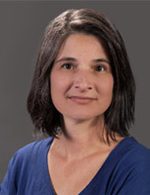
Anna Sosa, PhD, CCC-SLP
Anna Sosa completed her PhD in Speech and Hearing Sciences at the University of Washington in 2008. Prior to joining the NAU faculty in 2009, she worked as a school-based Speech Language Pathologist in Washington State. Her research focuses on phonological development in children with and without speech sound disorder and on the relationship between lexical and phonological development. She is also interested in the role of parent-child interaction and communication during early language development.
Benjamin V. Tucker, PhD Accordion Closed
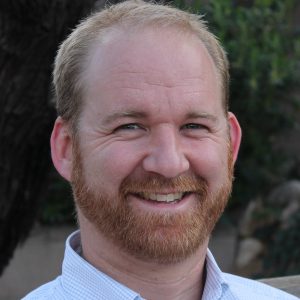
Benjamin V. Tucker, PhD
Dr. Tucker’s research focuses on the production and perception of spontaneous speech, the type of speech we produce in everyday communication (for example “Wazat?” for “What is that?”, audio examples are available here. His research also explores how these spontaneous forms are cognitively represented from the perspectives of speech production and speech perception. His interests in speech science are broad and he has worked with developing speech technologies, computational models of speech perception and comprehension, and speech production and perception over the adult lifespan. As part of his research, he led the creation of the Massive Auditory Lexical Decision database. He has also worked on the documentation of endangered and under-documented languages. More information can be found at his lab website.
